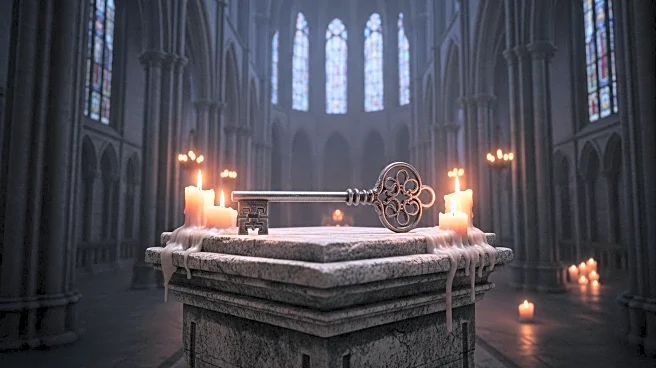What's Happening?
A new wave of gothic horror novels is set to explore diverse global settings, emphasizing the importance of location in the genre. Authors such as Yah Yah Scholfield, Vincent Tirado, and Leila Siddiqui are among those who are incorporating unique locales into their narratives. Scholfield's debut novel, 'On Sundays She Picked Flowers,' is set in the forests of southern Georgia, while Tirado's 'You Should Have Been Nicer to My Mom' takes place in a claustrophobic family home. Siddiqui's 'The Glowing Hours' reimagines the historical Villa Diodati in Switzerland, where Mary Shelley began writing 'Frankenstein.' These settings are integral to the stories, serving as characters themselves and influencing the plot and atmosphere.
Why It's Important?
The exploration of diverse settings in gothic horror novels highlights the genre's adaptability and its ability to resonate with a global audience. By situating their stories in varied locales, authors can tap into cultural and historical contexts that enrich the narrative and offer fresh perspectives. This trend reflects a broader movement in literature towards inclusivity and representation, allowing readers to experience horror through different cultural lenses. The emphasis on setting also underscores the genre's potential to address universal themes such as family dynamics, societal pressures, and historical legacies, making it relevant to contemporary readers.
What's Next?
As these novels are released, they may inspire other authors to explore unconventional settings in their own works, potentially leading to a broader diversification of the gothic horror genre. Publishers and literary critics will likely pay attention to how these settings influence reader engagement and reception. The success of these novels could encourage more cross-cultural collaborations and adaptations, further expanding the reach and impact of gothic horror. Additionally, readers may become more interested in exploring the historical and cultural backgrounds of the settings featured in these stories.
Beyond the Headlines
The use of global settings in gothic horror novels may prompt discussions about the ethical implications of cultural representation and appropriation. Authors must navigate the balance between honoring the cultural significance of a setting and using it as a backdrop for fictional narratives. This trend also raises questions about the portrayal of historical events and figures, and how these depictions can influence public perception and understanding. As gothic horror continues to evolve, it may serve as a platform for exploring complex social issues and fostering cross-cultural dialogue.










